When my ex-husband committed adultery six years into our marriage, I did not tell anyone. I was ashamed that perhaps people would think I was a bad wife. Was I supposed to forgive and forget?
Perhaps I had done something to turn him away. Or the worst, I wasn’t “putting out” enough. In other words, I was blaming myself and absorbing guilt that was not mine.
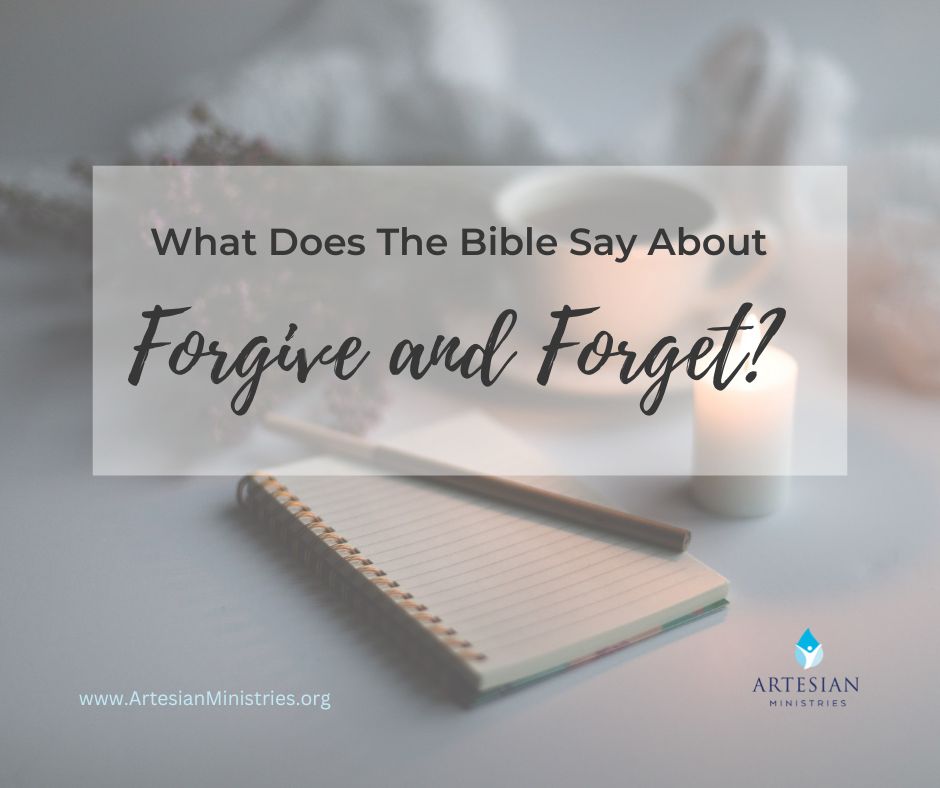
Contents
- Is Forgetting a Hurt Even Possible?
- Three Options for Dealing with our Wound
- Only God has the Power to Forget
- The Definition of Forgiveness
- What Forgiveness is NOT
God did not give human beings the divine power to erase our memories. We cannot forget when someone hurts us. However, we still need to walk toward the soul freedom that forgiveness promises.
So what can we do to get past the hurt to begin the forgiveness process?
The Unseen Wounds
When you are wronged, you are handed an internal wound. Though unseen, we never forget the pain caused by that wound.
The larger the pain, the larger the wound. Some days, I truly felt like I was bleeding out of my skin, but no one knew.
I prayed constantly for God to give me the grace to forgive that adultery. In tears, I often pleaded with God for His healing. For the Holy Spirit to give me the strength to move past that horrific wound. And for the courage to be intimate in my marriage again. For trust in my spouse to be repaired.
In His steadfast love, God granted all of those requests and more. Forgiveness flowed, our relationship was repaired, and He pulled our marriage out of the depths of the sea. And even though they had been forgiven, those memories were stored in the hard drives of my mind. Yours are, too.

Seven years later, I discovered my husband’s past sins had resurfaced and he was having multiple affairs, which ultimately ended our marriage. I cannot even fully describe the level of anger, hurt, and unforgiveness that welled up inside me.
Past hurts raged to the surface and I knew I needed to seek help for my own sake. I was drowning in emotional pain.
For the first time in my life, I sought Christian counseling. The absolute last thing I needed was for any root of bitterness to take hold.
It took a solid year for God’s forgiveness to flow in my heart to move me toward forgiving my ex-husband. I cannot stress strongly enough the importance of forgiveness in order to embrace a new life.
Is Forgetting A Hurt Even Possible?
We’ve all heard the phrase, “If you haven’t forgotten, you haven’t forgiven.” Perhaps you have even said it because I certainly used to. It’s easy to say but impossible to do. While we may be able to forget small slights, we remember life-altering wounds.
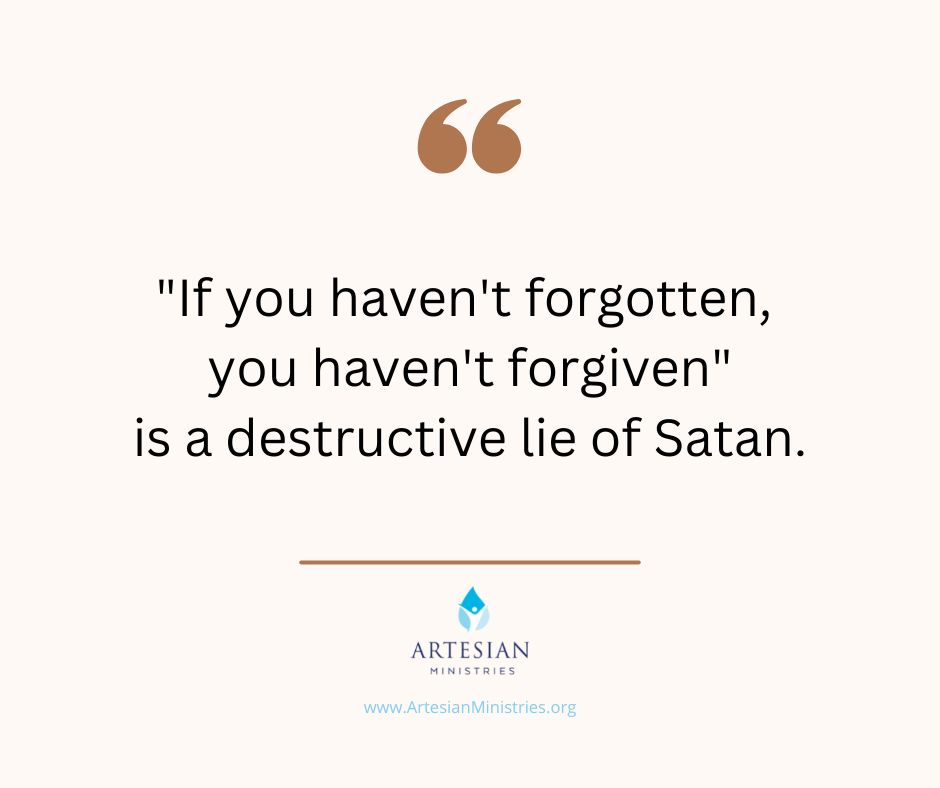
On the other hand, remembering certain kinds of hurt is usually beneficial. For instance, I don’t touch hot stoves because I did that once. Lesson learned.
Our memory can instruct us on how to avoid similar hurt in the future. It’s those heart hurts caused by unacceptable behavior or harsh words that can trip us up for a very long time.
A Stationary Bicycle Going Nowhere Fast
When we buy into the forgive-and-forget lie, we end up berating ourselves when we remember our wounds. We get frustrated and spend futile time and energy trying to make ourselves forget again. It is a useless, unproductive cycle that only succeeds in embedding the hurt deeper.
Satan loves the forgive-and-forget lie because it wastes our time and energy and always lands us right back where we started: remembering the wound. It’s a stationary bicycle going nowhere fast.
There is no solution to the lie of “forgive and forget.” That pot only keeps stirring toxic emotions.
Three Options for Dealing with our Wound
When someone hurts us (wounds us), we have three main options:
1. Hand It Back
When you hand back a wound, it is called revenge. It looks something like this: “You did this to me? Then, this is what I will do to you.” You then throw the wound back at them with a vengeance. Whether verbally or physically, handing the wound back through revenge intends to harm.
2. Internalize or Hide It
This happens when shame plays a part in the wound. Rape victims deal with this because some people still believe the nauseating assumption that somehow the victim invited or deserved it. The victim may hide it to avoid being called loose. Shame is the single biggest factor in hiding a wound.
3. Hand it Up to Jesus
When we hand our wounds up to Jesus Christ, we take them out of circulation. The wounds do not have the opportunity to fester in us or spread to others. Taking the wounds out of circulation stops the cycle. That is how Jesus patterned forgiveness. He felt the wounds, absorbed the pains, and forgave them from the cross. He took them out of circulation for eternity.
When you and I hand up our wounds to Jesus, He renews our strength from the inside out. Right where that wound is hiding. And He faithfully begins to work true forgiveness in us.
Even though you and I cannot forget a wound, we can certainly choose how to deal with the pain of their offense going forward. We can choose options 1 and 2 above and let bitterness sink in, or we can go with option 3 and live in the freedom that forgiveness brings.
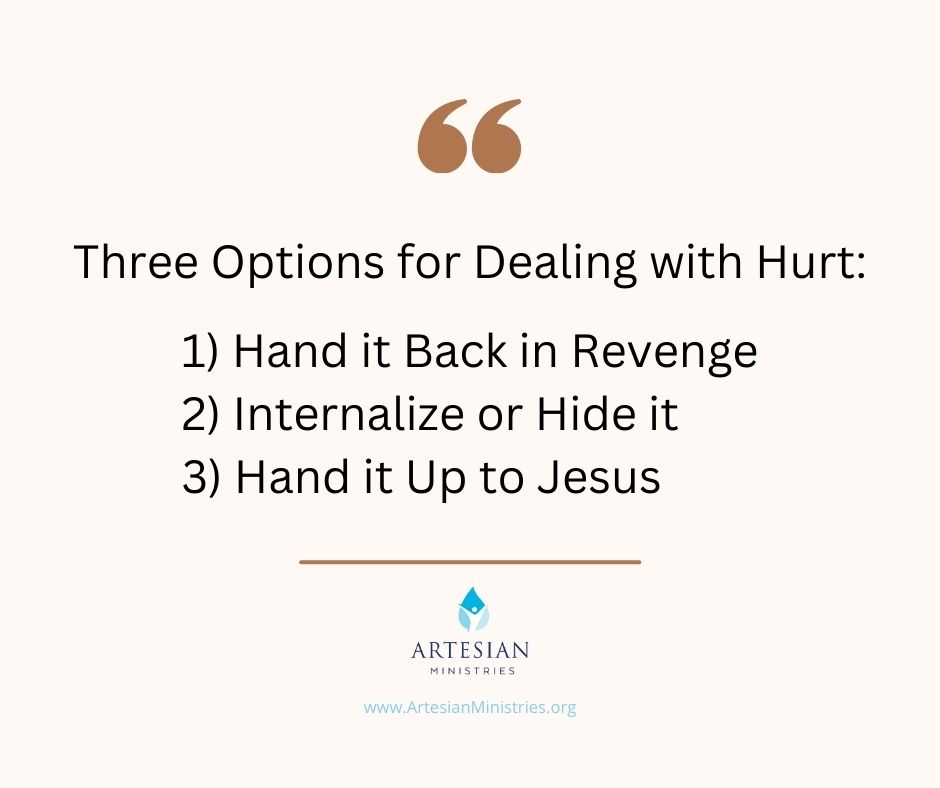
Only God Has the Power to Forget
In Hebrews 8, God’s Word says: “For I will be merciful toward their iniquities, and I will remember their sins no more” (Hebrews 8:12, ESV). God promises to forget our sins (the precise meaning of which could fill a whole book), but that is an unrealistic standard to put on ourselves. He is God. We are not.
What is the Definition of Forgiveness?
If you asked a dozen people to define forgiveness, you would likely hear twelve different responses. Since Christians are commanded to extend forgiveness, we need to clearly understand what it means.
Webster’s dictionary defines forgiveness as “to excuse a fault or offense; to stop feeling anger or resentment against; and to absolve from payment of.” Excuse and absolve are difficult verbs to swallow in the context of pain.
Thankfully, our Heavenly Father provides many Bible verses to navigate the storm. {Download 31-Day Forgiveness Bible Reading Plan}

The Greek word in the New Testament for forgive (aphiēmi) means “to send away.” In Christ Jesus, God packed up our transgressions (which include unforgiveness) and permanently sent them away. In Psalm 103:12, God promises: “As far as the east is from the west, so far does He remove our transgressions from us.”
The thing about the east and west is that there is no end. Once you start heading east, you are always heading east until you change directions. Once you journey west, you are always journeying west.
By the grace of God, He removes our sins and remembers them no more.
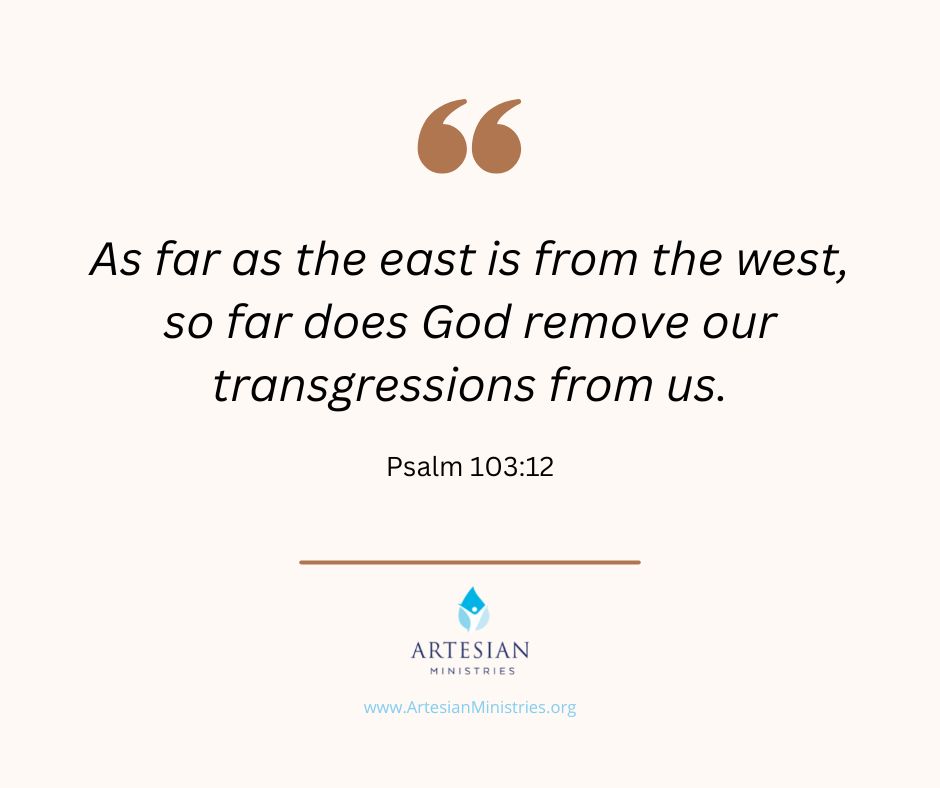
Hate and Love Cannot Coexist
When someone hurts us, God commands us to forgive because hate and bitterness do not line up with His teaching to love. Hate and love cannot coexist. Forgiveness cannot blossom when roots of unforgiveness hide in the soil of our hearts.
Thankfully, God does not simply issue the command to forgive, sit back, and watch us struggle. He provides the Source of power that enables us to fulfill His command.
The Apostle Paul wrote: “I have been crucified with Christ. It is no longer I who live, but Christ who lives in me. And the life I now live in the flesh I live by faith in the Son of God, who loved me and gave himself for me” (Galatians 2:20, ESV).
The power of Christ in us enables us to forgive the deepest wounds. Trust me. I have been divorced for twelve years now. Had I refused to let God work His forgiveness in me and then through me, I would be an angry, bitter, hot mess about now. A healed heart is FREEDOM.

Forgiveness is Commanded
Jesus talked about forgiveness more than two dozen times in the Gospels, including a key part of the Lord’s Prayer (Matthew 6:12) and teaching His disciples to forgive others “seventy-seven times” (Matthew 18:22). He even asked God to forgive those who nailed Him to the cross (Luke 23:34). That includes you and me.
Forgiveness is not God’s suggestion; it is His command: “Put on then, as God’s chosen ones, holy and beloved, compassionate hearts, kindness, humility, meekness, and patience, bearing with one another and, if one has a complaint against another, forgiving each other; as the Lord has forgiven you, so you also must forgive” (Colossians 3:12-13, ESV).
We must also forgive. That’s a hard truth to digest when the mere thought of forgiving your offender makes you sick to your stomach. I certainly did want to forgive my ex-husband. But those negative feelings were toxins in my soul.
It’s amazing how easily we throw around the word forgiveness until we are asked to step forward through the pain and extend it personally. But forgiveness is the only way we will survive bleeding out from the spiritual and emotional wounds caused by the hurtful words and actions of others.
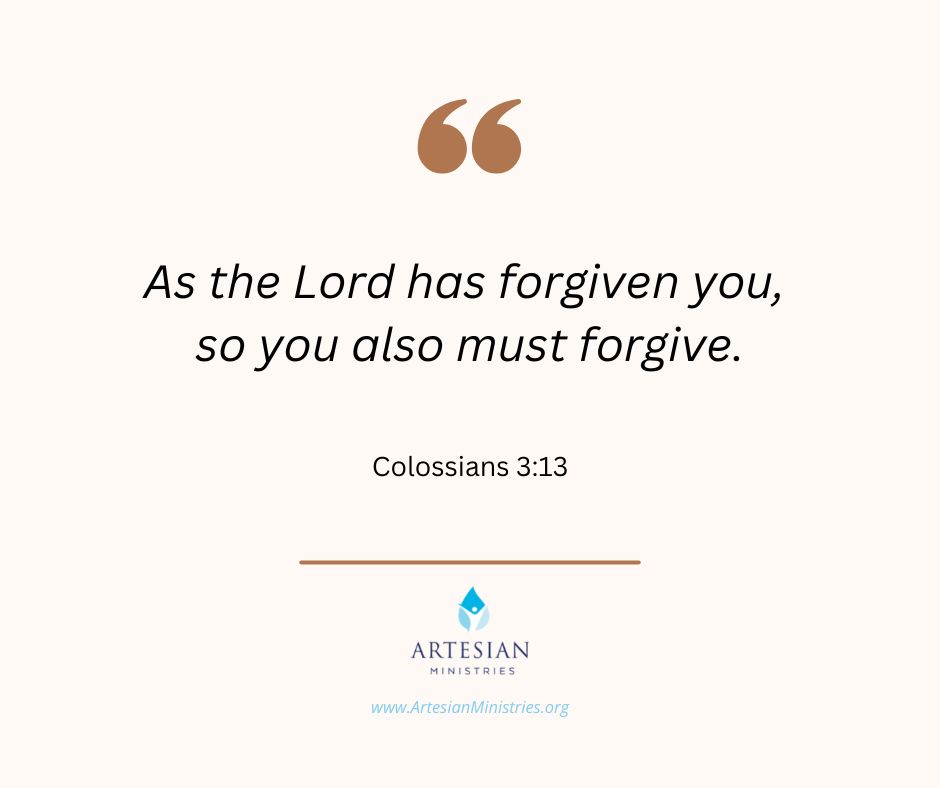
The Cost of Forgiveness
The heart of forgiveness always beats with liberation and freedom. Not necessarily for those who hurt you. But for you. Forgiveness is costly. We struggle not to lash out at those who hurt us.
We’re absorbing the debt and cost of the consequences instead of taking it out on the perpetrator. We suffer, and it hurts terribly. Surrendering that pain to God is the only pathway toward healing.
Some people say that it feels like dying. They are not wrong. The cost of forgiveness is death. Death to our desire for revenge. Death to seeking payment for the hurt they caused.
The cost of forgiveness is death. Just ask Jesus. He sacrificed His life to forgive us eternally. And His forgiveness leads us to experience a resurrection of new life centered in Him.
So start by asking God for just one small step today on the road toward forgiveness. Tomorrow, ask Him for another small step. The road ends in the death of bitterness and resurrection to life. The dead-end road ends at Calvary.
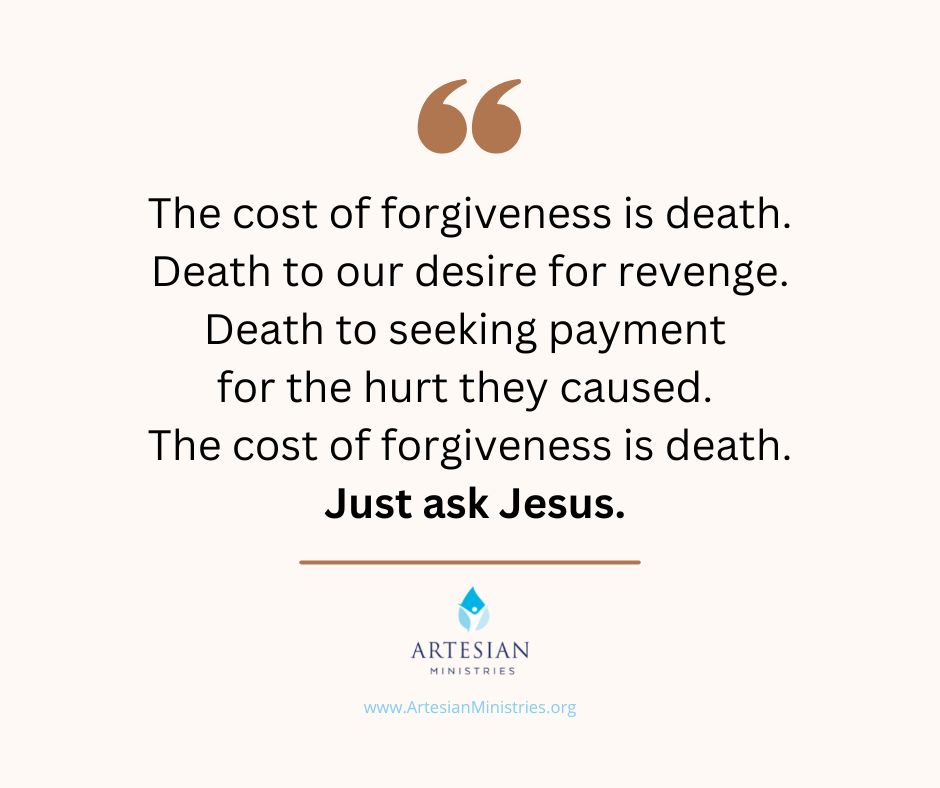
Does Forgiveness Condone Their Hurtful Actions?
The hardest struggle we face in extending forgiveness is falsely believing that we are somehow condoning their actions. That lie comes straight from the devil. The enemy loves weaving a web of toxicity around that lie because we want those who hurt us to pay for their transgressions.
Forgiveness does not mean condoning someone’s bad behavior. It means releasing their judgment and consequences to God.
As God faithfully opens doors for me to travel and speak with groups of women all over the country, I have discovered that forgiveness is often misunderstood.
Some believe that forgiveness should only be extended when their perpetrator asks for it. Or when they have groveled enough. But when is enough enough? Your pain cannot be undone, only surrendered to God.
Others believe that forgiveness means you must reconcile with the person who hurt you and go skipping through the tulip fields into the sunset together. Neither could be further from the truth. In order to extend forgiveness, we need to clearly understand what it is not.
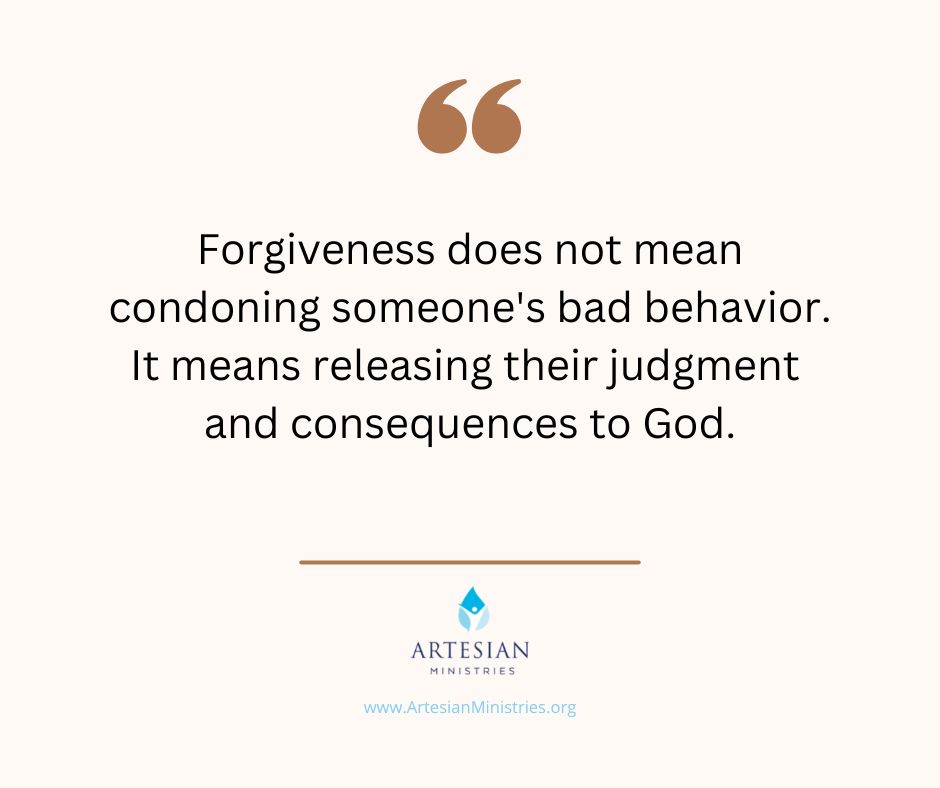
What Forgiveness is NOT
Forgiveness Is Not Excusing a Sin or Crime
This is one of the most common objections to extending forgiveness. Many people often equate forgiveness with letting someone off the hook; like somehow forgiveness approves what they did because we didn’t force them to make it right. But that’s not what forgiveness means.
For instance, a rape victim suffers horrible atrocities, and there are legal consequences for the violator. The victim can forgive her attacker yet still follow the legal process to take the proper course for her attacker to reap the punishment for his actions.
Sin is not okay. It can be forgiven, but it should not be excused. By God’s grace, we become wiser regarding future interactions with that person.
Forgiveness Is Different from Reconciliation
Forgiveness takes one. It is extended from one individual to another and released. Reconciliation takes two people who agree to set aside past hurtful behavior, communicate to repair the relationship, and move forward together.
I realized that reconciliation for my marriage was not possible due to the kind of women with whom my ex-husband was involved. If we had reconciled and continued in our marriage, I stood a very real chance of contracting HPV, HIV, or AIDS.
My ex-husband was a habitual adulterer, so reconciling and remaining married would have placed my health (and ultimately my life) in danger.
In situations where habitual abuse (whether physical or verbal) has occurred, reconciliation may not be possible because safe mental and physical boundaries must be established. But forgiveness is still commanded.
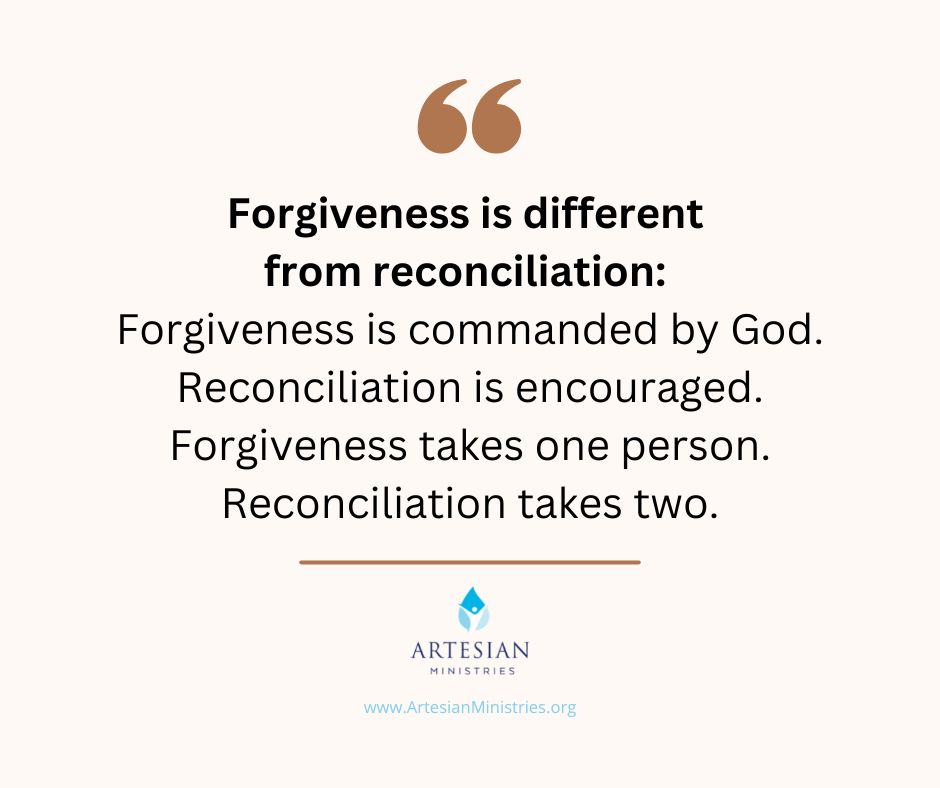
Forgiveness Is Not about Justice or Consequences
Forgiveness does not obligate the forgiver to protect the offender from reaping the consequences of his or her actions. Consequences are usually what it takes for offenders to change their behavior. If their actions have broken the law (rape, harming a child, etc.), we can and should follow through with appropriate legal action.
To prevent a perpetrator from raping again, testifying at trial is certainly appropriate. There are always consequences for sin, but exacting the consequences of their actions is God’s job, not ours.
He alone calls unrepentant sinners to answer for their actions. Even in such extreme circumstances when reconciliation is not possible, we still move toward forgiveness.
Forgiveness Is Not about the Offender
It is not our job to determine whether someone deserves forgiveness of sins. God never tells us in His Word to extend it only when the offender begs for it. Some people hold grudges and stay angry until they believe their offender has suffered enough. But how do we determine when enough is enough?
Hate and anger have consuming power, and those toxins can control and define us. When we allow unforgiveness to consume us, the object of our wrath actually has control over us. It can keep our hearts dangling over the fire, so to speak.
We are washed clean by baptismal grace; therefore, our merciful God does not withhold forgiveness from us—and we are to follow His lead. Forgiving others as God has forgiven us means that we are obeying God’s command. Yet forgiveness is also a gift to ourselves of a life free from bitterness and anger.
“Whatever you do, work heartily, as for the Lord and not for men, knowing that from the Lord you will receive the inheritance as your reward. You are serving the Lord Christ. For the wrongdoer will be paid back for the wrong he has done, and there is no partiality” (Colossians 3:23–25, ESV).
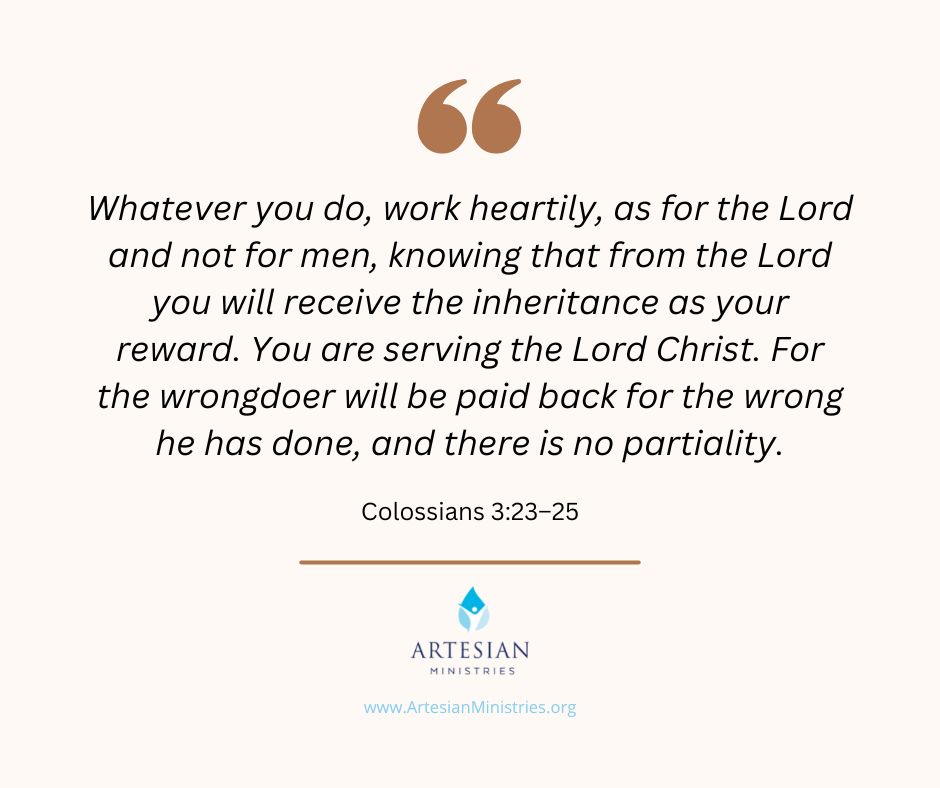
Did you notice that the Lord is the focus of those verses? The Lord handles the wrongs done to us as we heartily serve Him.
Forgiveness Is Not Artificial Nonchalance
Have you ever tried to pretend someone’s actions or words did not hurt you? Me too. But when I remember that hurt for the tenth time in an hour, I cannot keep pretending. Pretending there is nothing to forgive results in anger and resentment down the road.
What we harbor internally eventually surfaces externally. Forgiveness means we acknowledge the hurtful actions or words, pray for God to provide insight on how best to convey them gracefully to the offender, and allow God to move us toward Him for healing.
Forgiveness Is Not Avoidance
Some people believe that out of sight means out of mind. As long as we avoid our offenders, everything will be just fine. Although that person may not be around, the hurt they inflicted remains. It must be acknowledged, grieved, and forgiven.
Forgiveness Is Not Easy
It’s just not. It takes time. If the wound is deep, it may take a long time. That one year of post-divorce counseling felt like a lifetime. But focusing our energy and time on moving toward forgiveness means embracing our future free from the bondage of vengeful toxins.
We can confidently count on God’s outrageous faithfulness to us. Yesterday is over. Your future lies ahead. God provides peace of mind right alongside our fresh start. Relentlessly lay those hurts at His feet and trust Him to remove the sting.
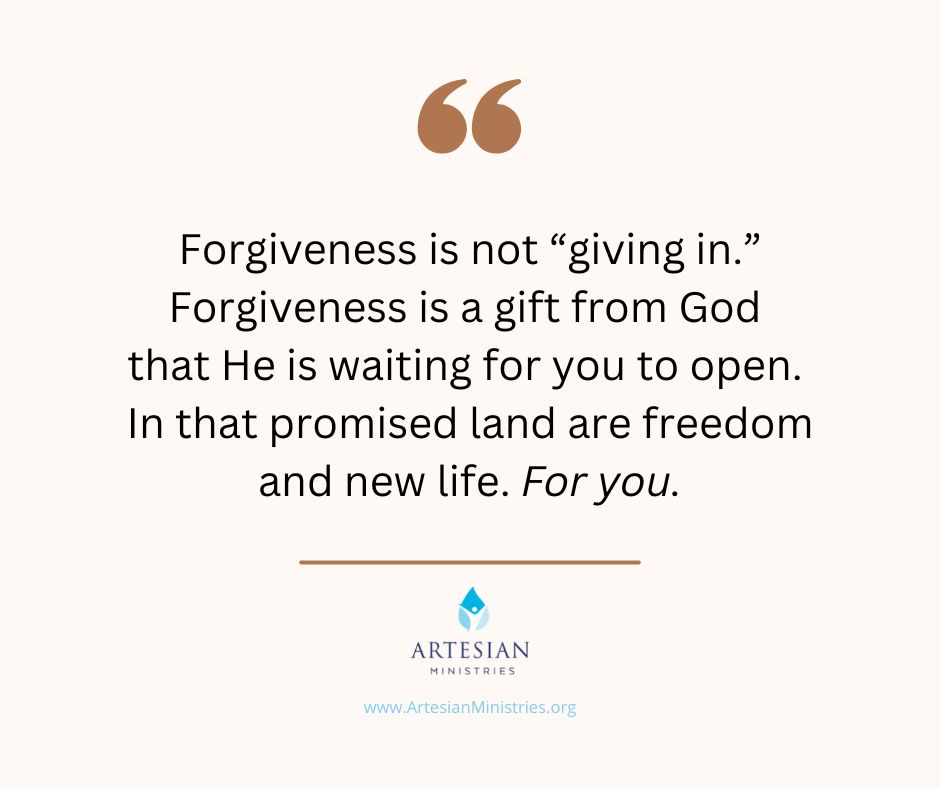
What’s the Takeaway?
I learned so much about forgiveness from the Lord, life experience, and counseling that I wrote an entire book on forgiveness. You can find that Bible study here.
God’s Word transforms us, so here is 31-Day Bible Reading Plan about forgiveness that you can download free right now and get started today.
Forgiveness is not “giving in.” Forgiveness is a gift from God that He is waiting for you to open. In that promised land are freedom and new life. For you.
Related Posts:
- Best Bible Reading Plans
- Warriors in the Bible: 13 Essential Life Lessons to Learn
- 50 Motivational Bible Verses About Aging Gracefully
About the Author
Donna is a sought-after author, speaker, and Bible teacher. Her path from being unchurched to becoming passionate about sharing Jesus was not easy. Read her God-breathed journey: “From Unchurched to Becoming a Multi-Published Author and Sought-After Speaker.” If you want to send Donna a quick message, then visit her here.
{Some of these links are affiliate links. This means if you make a purchase through that link, the ministry may receive a small commission at no extra cost to you. Thank you for your support!}

